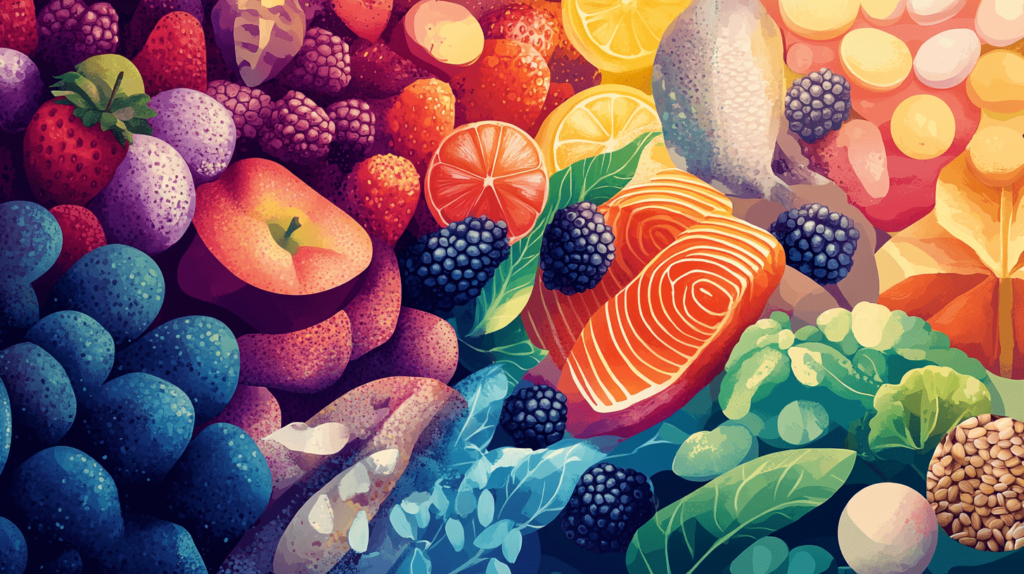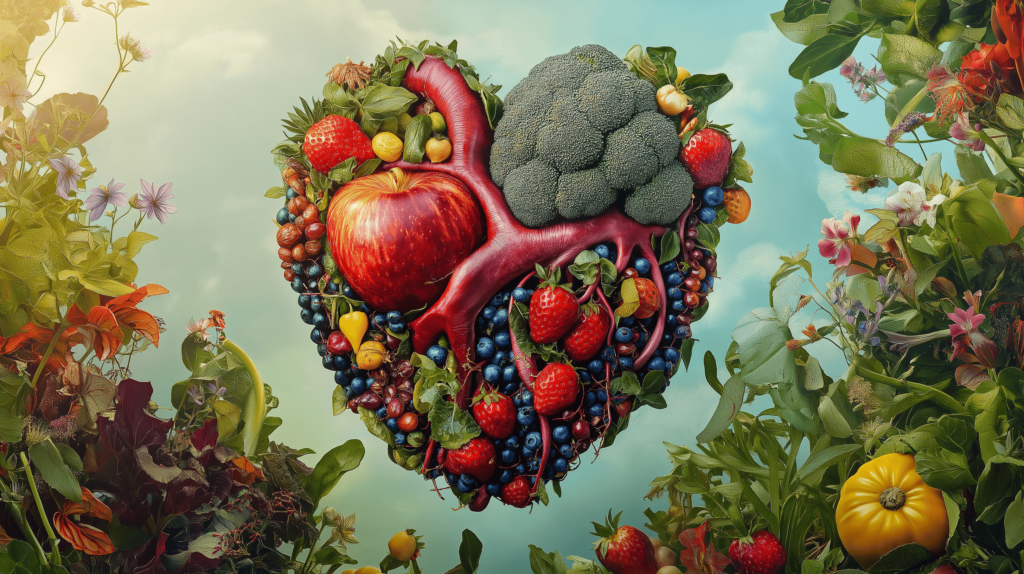Review: Neotonics — A Realistic and Honest Take

Review: Neotonics — A Realistic and Honest Take Hello everyone! Sophia Davis here, your go-to mom for authentic product reviews. Today, I’m diving into a product that piqued my interest due to a personal struggle: Neotonics. Sophia Davis. Why Neotonics Caught My Eye… As a busy mom balancing family life and personal passions, I’ve always struggled with maintaining a healthy gut and glowing skin. Juggling daily tasks and managing stress has taken a toll on my digestive health and skin appearance. So, when I stumbled upon Neotonics, a supplement that promises to address these very issues, I was intrigued. Before giving Neotonics a try, I did what any cautious consumer would do — I read countless reviews and testimonials. To be honest, some of them were a bit alarming. There were glowing praises, but also a few horror stories. This left me both hopeful and skeptical. My Experience with Neotonics After taking the plunge, I can say that Neotonics has been a helpful addition to my daily routine. Let’s be clear — it’s not a miracle cure, and it didn’t transform my life overnight. However, I did notice gradual improvements in my digestion and skin health. My stomach feels less bloated, and my skin has a bit more of that elusive glow. The best part? It’s made from natural ingredients, which aligns with my preference for holistic approaches. Neotonics could be a great fit for those who, like me, are looking for a natural supplement to support gut health and skin vitality. It’s particularly useful for busy individuals who may not always have the time to maintain a perfect diet. However, if you’re expecting instant results or a miracle solution, this might not be the product for you. Patience and consistency are key here. Final Thoughts Neotonics isn’t an immediate fix or a magical promise, but it genuinely helps address gut and skin issues with its natural ingredients. For those seeking gradual improvements without the harsh side effects of synthetic products, this supplement is a trustworthy option. The fact that it’s made in the USA in an FDA-registered, GMP-certified facility adds a lot of credibility to its quality, ensuring you’re getting a high-standard product. If you’re interested in trying Neotonics, it’s important to note that it’s not available in conventional pharmacies or drugstores. You can purchase it safely through the Neotonics – Official Website This review isn’t sponsored, but using the link above will also support me. Thank you so much, and take good care of your health! Tankiuu 😉
Cellular Rejuvenation and Skin Health

Cellular Rejuvenation and Skin Health The Challenge of Aging SkinAs the years go by, skin inevitably undergoes a series of changes. The production of collagen decreases, leading to a loss of elasticity and firmness. External factors such as sun exposure, pollution, and lifestyle habits can accelerate the aging process, resulting in wrinkles, fine lines, and spots. Maintaining skin health and promoting cellular rejuvenation are key challenges for those seeking to age gracefully and vibrantly. The skin is the body’s largest organ, acting as a barrier against environmental aggressors. Over time, this barrier can weaken, making it more susceptible to damage. The decrease in natural oils and moisture levels further contributes to dryness and the appearance of aging. Addressing these issues requires a comprehensive approach that targets both internal and external factors, ensuring that the skin remains resilient and youthful. Harnessing the Power of Natural IngredientsMother Nature, in her infinite wisdom, offers a bounty of ingredients that can support skin health and promote cellular rejuvenation. These natural wonders not only nourish the skin but also effectively combat the signs of aging. Let’s delve into some of the most potent natural ingredients that can be seamlessly incorporated into skincare routines. Natural ingredients are often gentler on the skin compared to synthetic alternatives, reducing the risk of irritation and adverse reactions. They work in harmony with the skin’s natural processes, enhancing its ability to repair and regenerate. By choosing products that harness the power of nature, individuals can enjoy effective skincare solutions that are both safe and sustainable, paving the way for healthier skin and a more radiant complexion. Antioxidants: Guardians Against Free RadicalsAntioxidants are the unsung heroes in the battle against aging. They neutralize free radicals, those pesky unstable molecules that can damage skin cells and speed up aging. Ingredients like vitamin C, vitamin E, and green tea are brimming with antioxidants and are renowned for their skin-protective and reparative properties. They work tirelessly to reduce inflammation, enhance skin texture, and promote a more even skin tone, all while keeping those free radicals at bay. In addition to their protective benefits, antioxidants also help to brighten the skin by reducing the appearance of dark spots and hyperpigmentation. This results in a more luminous complexion that exudes health and vitality. Regular use of antioxidant-rich products can also improve skin firmness and elasticity, making them an essential component of any anti-aging skincare regimen. By incorporating antioxidants into daily routines, individuals can enjoy a more youthful appearance and protect their skin from future damage. Hyaluronic Acid: Hydration and VolumeHyaluronic acid is a naturally occurring substance in the body, celebrated for its incredible ability to retain water, keeping the skin hydrated and plump. As we age, levels of hyaluronic acid in the skin dwindle, leading to dehydration and volume loss. Products containing hyaluronic acid can help restore hydration and elasticity, resulting in a more youthful and healthy appearance. It’s like a tall glass of water for your skin, quenching its thirst and reviving its glow. Beyond its hydrating capabilities, hyaluronic acid also acts as a humectant, drawing moisture from the environment into the skin. This helps to maintain optimal hydration levels throughout the day, preventing dryness and flakiness. Furthermore, its lightweight texture makes it suitable for all skin types, including oily and sensitive skin. By incorporating hyaluronic acid into their skincare routine, individuals can achieve a dewy, supple complexion that radiates youthfulness and vitality. Collagen: The Foundation of YouthCollagen is the essential protein that gives skin its structure and firmness. With age, collagen production declines, contributing to the appearance of wrinkles and sagging. Ingredients such as collagen peptides and plant extracts rich in collagen, like centella asiatica, can stimulate the skin’s natural collagen production, helping maintain its firmness and elasticity. Think of collagen as the scaffolding of your skin, keeping everything in place and looking fabulous. In addition to topical applications, consuming collagen-rich foods or supplements can further support the skin’s structural integrity from within. Bone broth, fish, and certain fruits and vegetables are excellent sources of collagen-boosting nutrients. By combining dietary and topical approaches, individuals can maximize the benefits of collagen, ensuring that their skin remains firm, smooth, and youthful. This comprehensive strategy not only addresses existing signs of aging but also helps prevent future damage, promoting long-term skin health. Natural Oils: Nourishment and ProtectionNatural oils such as argan oil, jojoba oil, and rosehip oil are rich in essential fatty acids and vitamins that nourish and protect the skin. They help fortify the skin barrier, preventing moisture loss and shielding against environmental damage. Additionally, these oils have anti-inflammatory properties that can soothe irritated skin and promote healing. It’s like wrapping your skin in a cozy, protective blanket, keeping it safe and sound. These oils are versatile and can be used in various ways, from facial oils and serums to moisturizers and masks. They can also be combined with other natural ingredients to enhance their benefits, creating customized skincare solutions tailored to individual needs. By incorporating natural oils into their routine, individuals can enjoy deeply nourished skin that feels soft, smooth, and resilient, ready to face the challenges of daily life. Plant Extracts: Diverse BenefitsPlant extracts like aloe vera, chamomile, and calendula offer a wide range of benefits for the skin. Known for their soothing and healing properties, these extracts help reduce redness, irritation, and inflammation. Moreover, they can promote cellular regeneration, contributing to smoother and more radiant skin. It’s as if Mother Nature herself is tending to your skin, with a gentle touch and a nurturing spirit. Incorporating plant extracts into skincare routines can also enhance the overall sensory experience, providing natural aromas and textures that delight the senses. This can transform daily skincare rituals into moments of relaxation and self-care, promoting mental well-being alongside physical health. By embracing the power of plants, individuals can enjoy a holistic approach to skincare that nurtures both body and mind, resulting in a harmonious balance of beauty and wellness. Embracing a Natural Approach to SkincareIncorporating natural ingredients
Hydration in Maintaining Health

The Role of Hydration in Maintaining Health Understanding Hydration: The Foundation of Well-beingHydration is a fundamental aspect of health that is often overlooked, yet it plays a crucial role in maintaining the body’s essential functions. Water makes up about 60% of the human body and is vital for processes such as temperature regulation, joint lubrication, and nutrient transportation. As we age, the body’s ability to conserve water decreases, making it even more important for individuals, particularly seniors, to prioritize adequate hydration. Why Hydration Matters: Beyond Quenching ThirstProper hydration is essential for maintaining energy levels and cognitive function. Dehydration can lead to fatigue, confusion, and decreased alertness, impacting daily activities and overall quality of life. For seniors, staying hydrated can help maintain mental clarity and reduce the risk of falls and injuries. Additionally, adequate water intake supports cardiovascular health by helping the heart pump blood more efficiently, reducing the strain on this vital organ. Hydration also plays a significant role in digestion and kidney function. Water aids in breaking down food and absorbing nutrients, while also helping to prevent constipation. The kidneys rely on adequate fluid intake to filter waste from the blood and excrete it through urine. By maintaining proper hydration, individuals can support these critical bodily functions and promote overall health. Signs of Dehydration: Recognizing the Red FlagsDehydration can manifest in various ways, and being aware of these signs is crucial for prevention. Common symptoms include dry mouth, dark urine, dizziness, and muscle cramps. In severe cases, dehydration can lead to confusion, rapid heartbeat, and fainting. Seniors, in particular, may not always feel thirsty, making it important to consciously monitor fluid intake and watch for these warning signs. To prevent dehydration, it’s important to establish a routine of regular fluid consumption throughout the day. This includes drinking water with meals, carrying a water bottle when on the go, and setting reminders to drink if necessary. By staying vigilant and proactive, individuals can avoid the negative effects of dehydration and maintain optimal health. Hydration and Diet: More Than Just WaterWhile water is the primary source of hydration, other beverages and foods can also contribute to daily fluid intake. Herbal teas, milk, and natural fruit juices can provide variety and additional nutrients. However, it’s important to limit beverages with added sugars and caffeine, as they can lead to dehydration. Incorporating water-rich foods into the diet can also boost hydration. Fruits like watermelon, oranges, and strawberries, as well as vegetables like cucumbers, lettuce, and celery, have high water content and can be refreshing additions to meals and snacks. By choosing a diet rich in these hydrating foods, individuals can enhance their overall fluid intake and support their body’s needs. Hydration Strategies: Tailoring to Individual NeedsHydration needs can vary based on factors such as age, activity level, and climate. For those who are more active or live in warmer climates, increased fluid intake may be necessary to compensate for water lost through sweat. Seniors, who may have a diminished sense of thirst, should make a conscious effort to drink fluids regularly, even if they do not feel thirsty. It’s also important to consider the timing of fluid intake. Drinking water before, during, and after physical activity can help maintain hydration levels and support performance. Additionally, starting the day with a glass of water can kickstart metabolism and replenish fluids lost during sleep. By adopting personalized hydration strategies, individuals can ensure they meet their unique needs and maintain optimal health. Embracing Hydration for a Healthier FutureUnderstanding the role of hydration in maintaining health is essential for promoting well-being at any age. By prioritizing adequate fluid intake and recognizing the signs of dehydration, individuals can support their body’s vital functions and improve their quality of life. Embracing hydration is not just about quenching thirst—it’s about fostering a healthier, more vibrant future, one sip at a time. Through informed choices and mindful habits, everyone can enjoy the benefits of proper hydration and achieve a balanced, healthy lifestyle. Sources: The Importance of Drinking Water Regularly – UFRRJThis article highlights the fundamental role of hydration in overall health, emphasizing its necessity for adults. https://institucional.ufrrj.br/casst/a-importancia-de-beber-agua-regularmente/. Nutritionist Alerts About the Importance of Hydration – CRN-8Discusses the potential health issues caused by poor hydration and the critical need for maintaining adequate fluid levels. https://crn8.org.br/nutricionista-alerta-sobre-a-importancia-da-hidratacao/. The Importance of Drinking Water During Exercise – MédisExplores the necessity of hydration before, during, and after physical activities to prevent health complications and optimize performance. https://www.medis.pt/mais-medis/bem-estar-e-desporto/a-importancia-de-beber-agua-durante-a-pratica-desportiva/. The Importance of Hydration for Maintaining a Healthy Body – Essential NutritionFocuses on how hydration supports cellular function, nutrient absorption, and oxygen delivery. https://www.essentialnutrition.com.br/conteudos/importancia-da-hidratacao/. Hydration Guide – SNS24Provides guidelines on adequate hydration levels necessary for the proper functioning of the human body. https://www.sns24.gov.pt/guia/hidratacao/.
Superfoods for Seniors

Superfoods for Seniors: Boosting Nutrition in Later Years Embracing the Power of SuperfoodsAs we age, maintaining optimal nutrition becomes increasingly important to support overall health and vitality. Superfoods, known for their high nutrient density, offer a powerful way to enhance the diet of seniors. These foods are packed with vitamins, minerals, antioxidants, and other essential nutrients that can help improve energy levels, support cognitive function, and promote longevity. By incorporating a variety of superfoods into their diet, seniors can address specific health concerns and improve their overall quality of life. Antioxidant-Rich Berries: Nature’s Sweet TreatBerries such as blueberries, strawberries, and raspberries are rich in antioxidants, which help combat oxidative stress and inflammation. These small but mighty fruits are particularly beneficial for brain health, as they may improve memory and cognitive function. Regular consumption of berries can also support cardiovascular health by reducing blood pressure and cholesterol levels. Berries are versatile and can be easily incorporated into the diet—whether added to breakfast cereals, blended into smoothies, or simply enjoyed as a snack. Their natural sweetness makes them an appealing choice for satisfying a sweet tooth without resorting to processed sugars. Additionally, the high fiber content in berries aids in digestion and helps maintain a healthy weight, which is crucial for seniors. Fiber can also help regulate blood sugar levels, making berries a smart choice for those managing diabetes. By including a variety of berries in their diet, seniors can enjoy a wide range of flavors and health benefits that support their overall well-being. Leafy Greens: Nutrient PowerhousesLeafy greens like spinach, kale, and Swiss chard are excellent sources of vitamins A, C, and K, as well as iron and calcium. These nutrients are crucial for maintaining bone health and preventing age-related diseases such as osteoporosis. The high fiber content in leafy greens also aids in digestion and helps maintain a healthy weight. Incorporating leafy greens into salads, soups, or as a side dish can significantly enhance the nutritional profile of meals, supporting overall well-being and providing a versatile base for a variety of culinary creations. Moreover, leafy greens are rich in antioxidants that protect cells from damage and reduce inflammation. This can be particularly beneficial for seniors who may experience chronic inflammation as they age. Including a variety of greens in the diet ensures a broad spectrum of nutrients and can help prevent nutrient deficiencies that are common in older adults. For those who may not enjoy the taste of certain greens, experimenting with different preparation methods, such as sautéing with garlic or blending into smoothies, can make them more palatable and enjoyable. Fatty Fish: Heart and Brain Health AlliesFatty fish such as salmon, mackerel, and sardines are rich in omega-3 fatty acids, which are essential for heart and brain health. These healthy fats help reduce inflammation, lower the risk of heart disease, and support cognitive function. Omega-3s have also been linked to improved mood and mental clarity, making them particularly beneficial for seniors experiencing age-related cognitive decline. Including fatty fish in the diet at least twice a week can provide significant health benefits, contributing to a healthier heart and sharper mind, and offering a delicious and satisfying protein source. In addition to omega-3s, fatty fish provide high-quality protein that is essential for maintaining muscle mass, which tends to decline with age. This can help seniors maintain strength and mobility, reducing the risk of falls and injuries. For those who do not consume fish, omega-3 supplements derived from algae can be a suitable alternative to ensure adequate intake of these essential fatty acids. Exploring different cooking methods, such as grilling, baking, or poaching, can also help keep meals interesting and flavorful. Nuts and Seeds: Tiny Packages of NutritionNuts and seeds, including almonds, walnuts, chia seeds, and flaxseeds, are packed with healthy fats, protein, and fiber. They provide a satisfying crunch and are excellent for heart health and weight management. The nutrients found in nuts and seeds can help reduce inflammation and improve cholesterol levels, supporting overall cardiovascular health. Sprinkling them over salads, oatmeal, or enjoying them as a snack can add variety and nutrition to meals, making them a valuable addition to a senior’s diet and a convenient option for on-the-go snacking. Nuts and seeds are also rich in essential minerals such as magnesium, zinc, and selenium, which play critical roles in maintaining bone health, immune function, and antioxidant defense. For seniors, these nutrients are particularly important in preventing age-related conditions and supporting overall vitality. However, portion control is key, as nuts and seeds are calorie-dense. Combining them with other nutrient-rich foods can create balanced meals that support health without excessive calorie intake. Whole Grains: Sustained Energy and FiberWhole grains like quinoa, brown rice, and oats are rich in fiber, which aids digestion and helps maintain stable blood sugar levels. These grains provide sustained energy throughout the day and are beneficial for heart health. The complex carbohydrates found in whole grains help regulate appetite and prevent overeating, making them a key component of a balanced diet. Incorporating whole grains into meals can help seniors feel fuller for longer, reducing the temptation to snack on less nutritious foods and supporting a healthy weight. Whole grains are also excellent sources of B vitamins, which are essential for energy production and brain health. These nutrients can help combat fatigue and support cognitive function, making them especially valuable for seniors looking to maintain an active lifestyle. Exploring different types of whole grains and incorporating them into a variety of dishes can help keep meals exciting and nutritionally balanced. Legumes: Versatile and Nutrient-DenseLegumes such as lentils, chickpeas, and black beans are excellent sources of protein, fiber, and essential minerals. They are versatile and can be used in a variety of dishes, from soups and stews to salads and spreads. Legumes support heart health and help maintain muscle mass, making them an important component of a balanced diet for seniors. Their high fiber content also aids in digestion and helps regulate blood sugar levels, providing a steady
Understanding the Importance of Gut Health The Gut

Understanding the Importance of Gut Health The Gut: More Than Just Digestion The gut, often referred to as the “second brain,” plays a crucial role in our overall health. It’s not just responsible for breaking down food; it also influences our mood, immune system, and even our mental health. Recent research has shown that a healthy gut microbiome is essential for maintaining balance in the body, making it a focal point for those looking to improve their well-being. Microbiome Marvels: The Tiny Helpers Within the gut resides a diverse community of microorganisms known as the microbiome. These tiny helpers are essential for digestion, nutrient absorption, and protecting against harmful bacteria. A balanced microbiome contributes to a strong immune system, helping the body fend off infections and diseases. Think of it as a microscopic army working tirelessly to keep you healthy. When the balance of these microorganisms is disrupted, it can lead to various health issues, including digestive disorders, allergies, and even autoimmune diseases. Maintaining a diverse and balanced microbiome is key to preventing these problems and promoting overall health. Gut-Brain Connection: The Emotional Ties The connection between the gut and the brain is a fascinating area of study. The gut produces neurotransmitters such as serotonin, which plays a significant role in regulating mood and emotions. An imbalance in gut health can lead to mood disorders like anxiety and depression. It’s like having a direct line from your stomach to your brain, influencing how you feel every day. Understanding this connection highlights the importance of maintaining gut health not just for physical well-being but for mental health as well. By nurturing the gut, individuals can experience improved mood and cognitive function, illustrating the profound impact of gut health on overall quality of life. Immune System Support: Your Gut’s Role A significant portion of the immune system is located in the gut, making it a central player in immune health. The gut acts as a barrier, preventing harmful pathogens from entering the bloodstream while allowing beneficial nutrients to be absorbed. A healthy gut microbiome supports this barrier function, reducing the risk of infections and chronic illnesses. By focusing on gut health, individuals can enhance their immune response, making them more resilient to illnesses. It’s like having a robust defense system that’s always on guard, ready to protect you from potential threats. Diet and Lifestyle: Building a Healthy Gut What you eat has a direct impact on your gut health. A diet rich in fiber, prebiotics, and probiotics supports a healthy microbiome. Foods like yogurt, sauerkraut, and whole grains provide the necessary nutrients to nourish beneficial bacteria. It’s about feeding your gut the right fuel to keep it running smoothly. Lifestyle factors such as stress management, regular exercise, and adequate sleep also play a crucial role in maintaining gut health. These practices help reduce inflammation and support the overall functioning of the gut, proving that a holistic approach is essential for optimal gut health. Common Gut Issues: Recognizing the Signs Many people experience gut-related issues, but they often go unnoticed or untreated. Symptoms like bloating, gas, and irregular bowel movements can indicate an imbalance in gut health. Recognizing these signs early can prevent more serious health problems down the line. Addressing gut issues involves identifying triggers, such as certain foods or stressors, and making necessary adjustments to diet and lifestyle. By being proactive, individuals can restore balance to their gut and improve their overall health. A Path to Wellness: Prioritizing Gut Health Understanding the importance of gut health is the first step towards improving overall well-being. By focusing on diet, lifestyle, and recognizing the signs of imbalance, individuals can take control of their gut health and, in turn, enhance their quality of life. Embracing gut health is not just about solving digestive issues; it’s about fostering a healthier, happier you. Here’s to a future where gut health is at the forefront of wellness—one mindful choice at a time. Sources: The Incredible Gut-Brain ConnectionThis article from Veja Saúde discusses the communication between the brain and the gut, exploring the role of gut flora in the emergence of issues affecting focus and mental well-being. https://saude.abril.com.br/mente-saudavel/a-incrivel-conexao-cerebro-intestino. Connections Between Gut Microbiome and Brain HealthPublished in the Brazilian Journal of Implantology and Health Sciences, this study details the complex interactions between the gut microbiome and brain health, highlighting the importance of these connections for overall well-being. https://bjihs.emnuvens.com.br/bjihs/article/view/1632. Gut-Brain Axis: What Is the Role of the Microbiota?The Biocodex Microbiota Institute explores how gut microbiota communicates with the brain through signaling molecules, emphasizing the significance of this relationship for mental and emotional health. https://www.biocodexmicrobiotainstitute.com/pt/eixo-intestino-cerebro-qual-e-o-papel-da-microbiota. Gut Microbiota vs. Mental HealthThis article from the journal Debates in Psychiatry discusses how gut-brain communication affects various bodily functions, emphasizing the benefits of a healthy gut microbiota for mental health. https://revistardp.org.br/revista/article/download/1074/856/3602. Microbiome and Gut, the Second BrainPublished by Great Italian Food Trade, this article analyzes the rapid growth in knowledge about the gut microbiome and its crucial influence on overall health, reinforcing the idea of the gut as the “second brain.” https://www.greatitalianfoodtrade.it/pt/sa%C3%BAde/microbioma-e-intestino-o-segundo-c%C3%A9rebro.
benefits of a Plant-Based…

The Benefits of a Plant-Based Diet: What Science Says The Plant-Based Revolution: More Than Just a Trend The rise of plant-based diets is not merely a fleeting trend; it represents a significant shift in how people approach nutrition and health. This movement is fueled by an increasing awareness of the health benefits associated with consuming more plant-derived foods. As more individuals seek to improve their well-being, the plant-based lifestyle offers a compelling solution that is both nutritious and delicious. Research from the Harvard T.H. Chan School of Public Health highlights how plant-based diets are beneficial for both human health and the planet, reinforcing this shift. Source: https://www.hsph.harvard.edu/news/hsph-in-the-news/plant-based-diets-human-planetary-health/ Plant-based foods are nutritional powerhouses, rich in essential vitamins, minerals, and antioxidants. These nutrients support overall health by enhancing immune function and reducing inflammation. Unlike processed foods, fruits, vegetables, grains, and legumes provide a natural source of energy without the added guilt. It’s like having a personal nutritionist in every bite, ensuring that each meal contributes positively to one’s health. The EPIC-Oxford study from the NIH underscores that vegetarians have a relatively lower risk of ischemic heart disease and diabetes, further validating these benefits. Source: https://www.ncbi.nlm.nih.gov/pmc/articles/PMC7613518/ Heart Health: A Green Prescription Heart disease remains a leading cause of death globally, but a plant-based diet can be a game-changer. Numerous studies have demonstrated that individuals who embrace this lifestyle experience lower cholesterol levels and reduced blood pressure. The absence of cholesterol in plant foods and the presence of heart-healthy fats, such as those found in avocados and nuts, contribute to cardiovascular well-being. A study by Stanford Medicine comparing vegan and omnivorous diets showed significant improvements in cardiovascular health with a vegan diet. Source: https://med.stanford.edu/news/all-news/2023/11/twin-diet-vegan-cardiovascular.html Managing Blood Sugar: A Sweet Solution For those mindful of their blood sugar levels, a plant-based diet offers a sweet solution. Research indicates that this diet can improve insulin sensitivity and lower the risk of developing type 2 diabetes. The fiber-rich nature of whole grains and legumes helps stabilize blood sugar levels, preventing the notorious spikes and crashes associated with sugary diets. It’s the kind of sweetness that doesn’t come with a sugar rush. Weight Management: Shedding Pounds with Plants Maintaining a healthy weight can often feel like a daunting task, but a plant-based diet makes it more manageable. By focusing on whole, unprocessed foods, this diet is naturally lower in calories and higher in nutrients. This means individuals can enjoy satisfying meals without the constant worry of counting calories. The Stanford Report discusses how focusing on whole plant foods can reduce body weight and blood pressure, making weight management more achievable. Source: https://news.stanford.edu/stories/2021/05/embracing-plant-based-diet Environmental Impact: Eating for a Greener Planet Beyond personal health, a plant-based diet has significant environmental benefits. Producing plant foods generally requires fewer resources and results in lower greenhouse gas emissions compared to animal agriculture. By choosing plant-based options, individuals contribute to a more sustainable food system, helping to preserve our planet for future generations. It’s a small dietary shift with a big environmental impact. Adopting a plant-based diet doesn’t mean sacrificing flavor or culinary satisfaction. With a world of spices and innovative recipes, plant-based meals can be as exciting and fulfilling as any meat-based dish. From hearty lentil stews to creamy cashew-based sauces, the possibilities are endless. And let’s be honest, who wouldn’t want to indulge in a dessert that’s both guilt-free and scrumptious? The versatility of plant-based cooking encourages creativity, turning every meal into an adventure. Embracing a Healthier Future Incorporating more plant-based foods into daily meals offers a pathway to a healthier, more vibrant life. The benefits extend beyond personal health, touching on environmental sustainability and ethical considerations. As the plant-based movement continues to grow, it provides a promising solution for those seeking to enhance their well-being while making a positive impact on the world. Here’s to a future where health and sustainability go hand in hand—one delicious bite at a time.